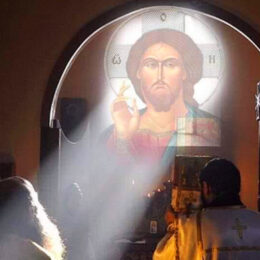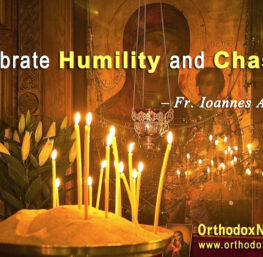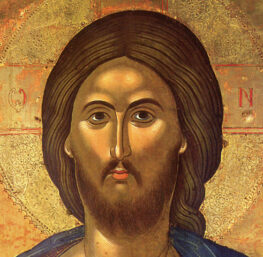
One of the disturbing aspects of the liberal/progressive faith campaign known as the Circle of Protection is that its organizers have such little regard – indeed are blind to — the innate freedom of the human person.
Their campaign, which has published “A Statement on Why We Need to Protect Programs for the Poor,” equates the welfare of the “least of these” in American society to the amount of assistance they receive from the government — a bizarre view from a community that trades in spiritual verities. Circle of Protection supporters see people locked into their circumstances, stratified into masses permanently in a one-down position, thrown into a class struggle where the life saving protection of “powerful lobbies” is nowhere to be found. And while they argue that budgets are moral documents, their metrics for this fiscal morality are all in dollars and cents.
Not only does the Circle of Protection group appear to be oblivious to the power of private charity and church-based outreach to the needy, but they seem to have no hope for the poor outside of bureaucratic remedies. This is a view of the human person not as a composite of flesh and spirit, but as a case number, a statistic and a passive victim of the daily challenges and troubles that life brings.
present government programs do nothing but enslave the poor … and do nothing to break the cycle of poverty in this country
In response to the Circle of Protection campaign, another faith group has formed with a very different outlook on the budget and debt debates that will consume the political energy of the country in the months ahead. Christians for a Sustainable Economy (CASE) argue for policies that are focused less on protecting poverty programs and more on protecting the poor (I am a supporter). In a letter to President Obama, CASE wrote:
We need to protect the poor themselves. Indeed, sometimes we need to protect them from the very programs that ostensibly serve the poor, but actually demean the poor, undermine their family structures and trap them in poverty, dependency and despair for generations. Such programs are unwise, uncompassionate, and unjust.
This is what Fr. Peter-Michael Preble was getting at when he observed that “… the present government programs do nothing but enslave the poor of this country to the programs and do nothing to break the cycle of poverty in this country.” This is not, he added, an argument to eliminate all government assistance but rather for “a safety net and not a lifestyle.”
In discussing the relative merits of the Circle of Protection and the Christians for a Sustainable Economy campaign, Michael Gerson wrote that “the Circle’s approach is more urgent.” Arguing against “disproportionate sacrifices of the most vulnerable,” he asserted that “public spending on poverty and global health programs is a sliver of discretionary spending and essentially irrelevant to America’s long-term debt.”
It’s a big and growing “sliver.” According to a Heritage Foundation study of welfare spending, of the 70-odd means-tested programs run by the federal government, “almost all of them have received generous increases in their funding since President Obama took office.” The president’s 2011 budget will increase spending on welfare programs by 42 percent over President Bush’s last year in office. Analyst Katherine Bradley observed that “total spending on the welfare state (including state spending) will rise to $953 billion in 2011.”
When creativity and entrepreneurship are rewarded, the yield is an increase of productivity and generosity.
Instead of more billions for failed poverty programs, CASE argues that “all Americans – especially the poor – are best served by sustainable economic policies for a free and flourishing society. When creativity and entrepreneurship are rewarded, the yield is an increase of productivity and generosity.” Underlying this is a belief that the human person is able to freely and creatively anticipate what life may bring, rather than wait around for a caseworker or a Washington lobbyist to intervene.
That freedom explains why some people, even in difficult economic times, can move up the income scale despite assertions that they are among the “most vulnerable.” A U.S. Treasury study showed that “nearly 58 percent of the households that were in the lowest income quintile (the lowest 20 percent) in 1996 moved to a higher income quintile by 2005. Similarly, nearly 50 percent of the households in the second-lowest quintile in 1996 moved to a higher income quintile by 2005.” In an analysis of income inequality and social mobility, economist Thomas Sowell wrote that there is a confusion “between what is happening to statistical categories over time and what is happening to flesh-and-blood individuals over time, as they move from one statistical category to another.”
Income mobility is debated endlessly by economists, but it is the existential reality for countless Americans who have ever strived for something better — or suffered a setback in their hopes. Yet the one sure thing that will stifle this mobility is an economy in decline, with job creation slowed, and encumbered by ever higher federal budget deficits and debt. And that’s what we’ll get more of if the Circle of Protection’s prescriptions for a “moral budget” hold sway.
When economic systems break down, as they are now unraveling in some European welfare states, those who will be hurt first and hardest will be the poor, the working family living from paycheck to paycheck, the pensioner – those operating at the margins. If we fail to come to grips with the reality of our potentially ruinous fiscal trajectory, we will all learn, as other countries are now learning, what “truly vulnerable” means.
HT: Acton Institute



